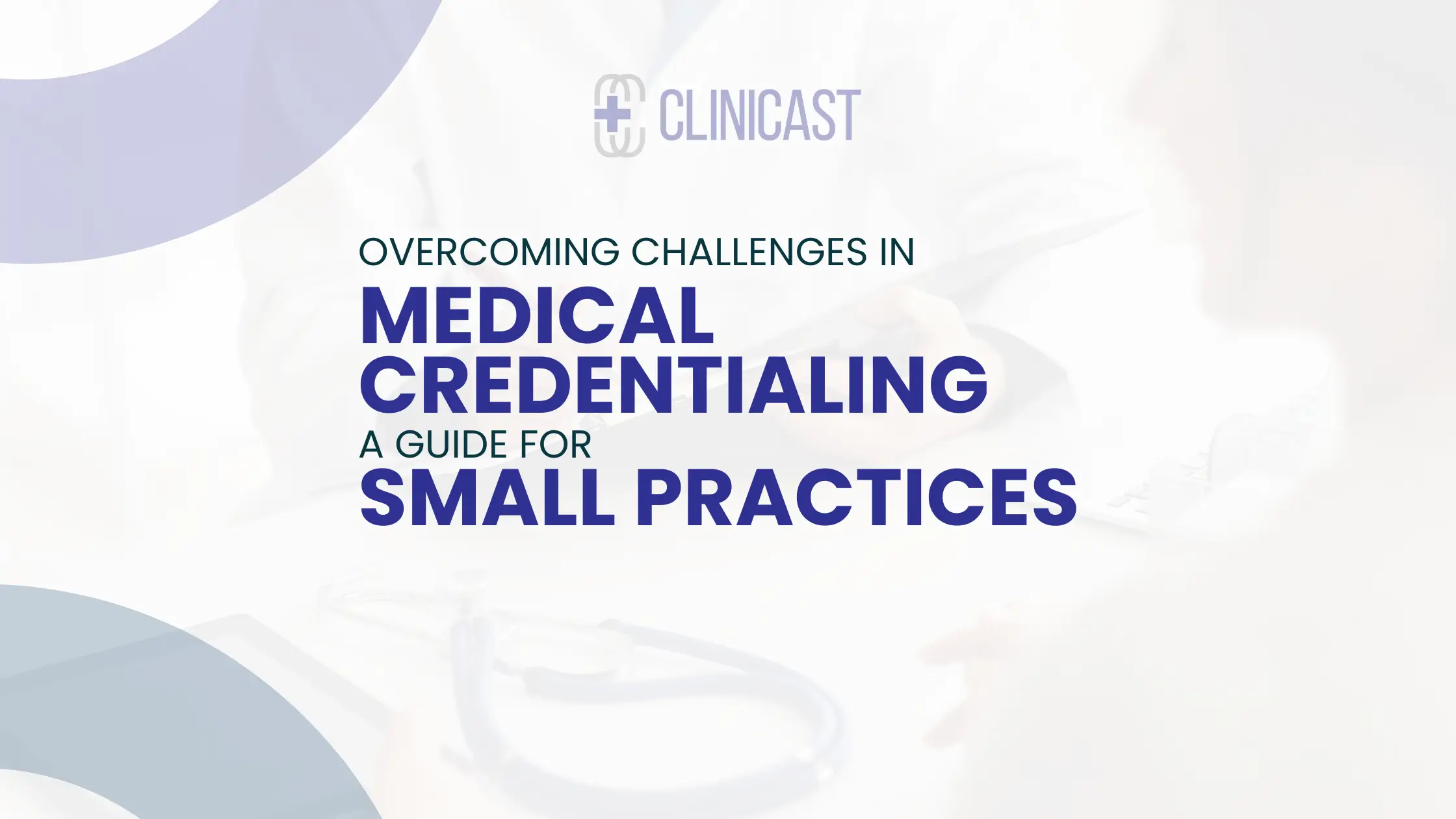Credentialing challenges are essential for establishing the legitimacy and qualifications of medical professionals. For small practices and solo doctors, navigating the medical credentialing maze can be daunting, especially with limited administrative backing. Yet, the significance of the credentialing process is paramount. It guarantees the expertise of healthcare providers, ensuring patient safety, fostering trust, and adhering to regulations and standards.
Key Challenges in Medical Credentialing
Recognizing the challenges is the foundation to surmounting them. Here’s a look at the common obstacles small practices grapple with during the medical credentialing journey:
Organize and Go Digital
Establish a comprehensive digital archive for all your credentials and essential documents. Leveraging cloud storage or dedicated software ensures effortless access and real-time updates.
Stay Informed
Subscribing to relevant newsletters or becoming a member of professional associations can keep you abreast of the latest regulatory shifts and standards.
Leverage Expertise
Think about engaging a medical credentialing expert or consultant. They can navigate the complexities of the verification process, guaranteeing precision and adherence.
Harness Digital Tools
Deploy digital calendars or credentialing applications to prompt reminders for renewals, ongoing education, and other crucial deadlines.
Plan Financially
Grasp the financial nuances and allocate funds accordingly. Factor in potential application fees and possible revenue interruptions during the credentialing period.
Conclusion
The labyrinth of medical credentialing can be particularly challenging for smaller practices operating on limited resources. However, with a clear understanding of the hurdles and regulations, robust organization, and the right support network, this maze can be navigated efficiently. The endgame isn’t just about acquiring credentials—it’s about upholding exemplary patient care standards and fostering trust. Armed with resilience and strategic insights, you can triumph over the medical credentialing challenges and zero in on delivering exceptional medical care.
Frequently Asked Questions (FAQs)
Q: What exactly is the medical credentialing process?
A: Medical credentialing is a rigorous procedure that validates the qualifications, experience, and professional standing of doctors and healthcare providers. It’s a checkpoint to ensure they adhere to the medical industry’s established standards and norms.
Q: Why is the medical credentialing process so crucial?
A: Credentialing vouches for a healthcare provider’s competence and qualifications. It’s instrumental in ensuring patient safety, fostering trust, and meeting regulatory and insurance reimbursement requirements.
Q: What’s the usual duration for the medical credentialing process?
A: The duration can fluctuate based on various elements, but it generally spans between 60 to 120 days. Delays might arise from incomplete documentation or extended verification wait times.
Q: Is it feasible for small practices to handle medical credentialing internally?
A: Absolutely! While small practices can conduct the process internally, it demands meticulous planning, a thorough grasp of regulations, and dedicated time. Consequently, many prefer outsourcing to simplify the procedure and guarantee precision.


